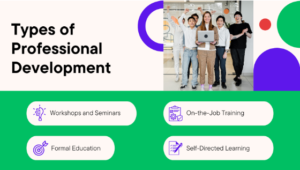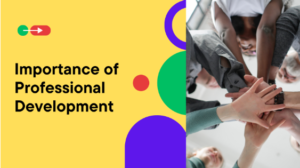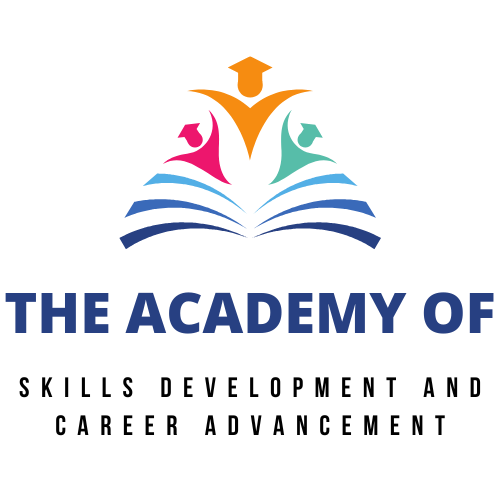
Introduction
With the industry constantly evolving and the pressure to stay ahead of the competition, professional development is a must if you want to keep a competitive edge. In case you didn’t know, professional development is a term used to describe the process of improving your existing skills or learning new ones to enhance your performance in the workplace. This might seem like a no-brainer, but as a professional, you must maintain a high standard. Professional development can help you improve your skills or move into a different role or industry. Whether you’re just starting your career or already a seasoned professional, you should invest in learning to boost your chances of success. In this blog, we will discuss what professional development is, why it’s important for your career, and what you can do to make it happen.
Understanding Professional Development

What Is Professional Development : Professional development is the process of acquiring new skills, knowledge, and experience that develop you professionally and enhance your effectiveness in your job. This can entail participating in formal education, taking courses or workshops, attending conferences, certifying a speciality, and also learning on your own by reading, taking online courses, and networking.
Where you might complete a school, college, or university education before you start working, professional development is a journey you’ll undertake throughout your career to keep up with your industry, hone your competencies, and respond to the changing demands and opportunities of your job.
Types of Professional Development

Professional development can take a variety of forms, depending on your career aspirations and the expectations of the relevant field.
Some examples include:
Formal Education: someone who wants to further their career might pursue an advanced degree, diploma, or certification in their field (e.g., someone who works as an accountant might pursue a CPA certification).
Workshops and Seminars: These are short-term educational sessions on a specific topic (for example, leadership skills, project management, how to use a new software tool) that are attended by employees for a limited amount of time.
On-the-Job Training: New skills learned through hands-on experience within your current role. Often, it can be something like taking on a new responsibility, shadowing a co-worker, or taking part in a company training program.
Networking and Mentorship: Get to know fellow students, mentors, and industry leaders to exchange knowledge, seek advice, and explore new career opportunities.
Self-Directed Learning: Reading books and taking courses independently in your chosen field.
Why Professional Development Is Important

Staying Competitive in Your Field: As the pace of change in jobs and industries increases, the skills you gained five years ago may need to be improved today. Professional development keeps your skills and knowledge fresh for your career and enhances the value of your organization. It also helps you stay current so you can keep up with trends, tools, and best practices and face new challenges.
Career Advancement Opportunities: Everyone wants to get ahead in their career, and being professionally developed is the key to doing so. If you stay inactive, your skills are out dated, and you’ll ultimately fall behind. If you’re interested in getting promoted, a raise, or a new job entirely, then professional development is a necessity. Employers will invest in employees who prove that they are willing to invest in themselves and are motivated to better their skills and capabilities. Professional development is also the best way to become a leader, specialize in a specific field, or even switch careers and transition into a new profession or unexplored area of work.
Increased Job Satisfaction: Taking advantage of professional development opportunities can make you feel good about your job. When you learn more, grow your knowledge, and identify new skills, this can give you more confidence about your work and help you feel like you are making a difference. Professional development can also help you identify new areas of interest and focus in your field that will make your work more exciting and stimulate you.
Enhanced Productivity and Performance: Professional development workshops provide new methods, tools, and approaches that can make you more efficient and effective at work. You might become more productive, solve problems better, and make better decisions as a result of enhanced professional development. Your improved work performance can boost your team and the organization.
Building a Professional Network: Networking opportunities with other professionals through conferences, workshops, or events in your industry are often features of professional development activities. Building a strong professional network may be critical for sharing new ideas, learning new approaches, and even discovering new opportunities. By networking, you can learn from the experiences of others, receive mentorship, and collaborate with others on projects that can propel your career forward.
How to Engage in Professional Development

Set Clear Goals: The first step to participating in professional development is to identify specific and clear goals. Think about where you’d like to be in your career in the next three to five years and what skills or knowledge you need to get there. The identification of these goals will help you understand the most appropriate professional development opportunities. It will keep you focused on your growth.
Identify Opportunities for Growth: Once you’ve set your goals, analyze what opportunities are available to you. Think about workshops or seminars that you can attend or online courses or certifications you can complete. Also, think about the opportunities available to you at your organization – such as a new project you could take on, a mentor you could connect with, or a company-sponsored training programme you can enroll in.
Create a Development Plan: A professional development plan spells out what you will do to achieve your goals, including what activities you will do when you will do them, and what resources you will need. A plan lets you see the big picture and stay organized so that you consistently work toward your development goals.
Seek Feedback and Mentorship: For instance, feedback from bosses, colleagues or mentors can give you useful information about your strengths and weaknesses. Mentorship from a more seasoned professional can help you develop your career. It can offer some assistance as you pursue it.
Stay Committed to Continuous Learning: Professional development is a life-long process. Keep working on your development by taking classes, reading, networking and getting updated on trends on a regular basis. Remember that little improvements can add up to make a big difference.
Conclusion
In today’s competitive job market, anyone seeking to move up the career ladder, improve job satisfaction, and have a fulfilling life needs to be actively involved in their professional development. By participating in training and development opportunities, setting clear goals and performing in-depth self-assessments, you can improve your skills, increase your job satisfaction and open up new opportunities. Whether you’re just starting your career or are a seasoned veteran, professional development should be one of your top priorities.
